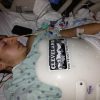It’s important to track your blood pressure and keep it in a healthy range. If you need medicine to lower your blood pressure, here are some tips to help you explain the different types, how they work, and more.
Contributed by: Shelby Clapacs | Pharmacist
Here’s how the different kinds of blood pressure medicine can help and which ones may be best for you.
Having side effects from your blood pressure medication?
Your MetroHealth care team is here for you. If you’re having any side effects, talk to your doctor or pharmacist right away. There are many options and changes to medications that can be made to best meet your needs. It’s important to not stop taking the medicine on your own.
Did you know MetroHealth offers a mail-order pharmacy? If you need or are taking blood pressure medication, MetroHealth’s mail-order pharmacy makes it easier than ever to have your medicine delivered to your door at no additional cost. To set up a mail order prescription, call 216-957-MEDS (6337) or learn more about medication home delivery.











